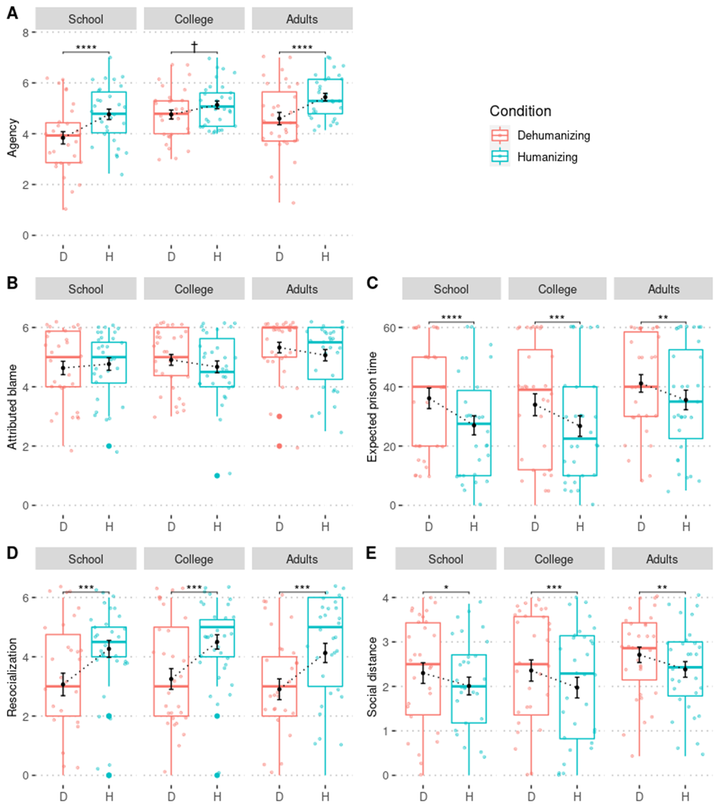Dehumanization Effects on Agency Attributions, Retributive Justice judgments, and Resocialization Attitudes towards Former Perpetrators in Post-conflict

Abstract
In the present research we examine the effect of dehumanizing framing of ex-perpetrators of violence on participants’ attributions of their agency, punishment deservingness, and suitableness for re-socialization in post-conflict. For this purpose, we collected data in the aftermath of a peace agreement between the government and the FARC guerrilla in Colombia. In two studies, using within (Study 1) and between (Study 2) subjects experimental designs (N = 223), participants read manipulated news articles describing the capture of a fictional FARC guerrilla member. They were exposed (Study 1) and randomly assigned (Study 2) to a “humanizing frame” condition, where the ex-perpetrator was described emphasizing human traits (e.g., his identity, affective and mental states), and to a “dehumanizing frame” condition, where these traits were omitted, and the ex-perpetrator was generically nominated with terms such as terrorist or bandit. Across conditions we measured participants’ attributions of perpetrators’ human agency, blame, punishment deservingness, as well as participants’ re-socialization expectations, and social distance towards the character. Results indicate that compared to the humanizing frame condition, in the dehumanizing frame condition participants significantly attribute less agency to the perpetrator, endorse more severe retributive judgments, show more negative attitudes towards his re-socialization, and express greater social distance. We discuss the implications of these findings for the Disarmament, Demobilization, and Reintegration (DDR) process of ex-perpetrators in post-conflict societies.